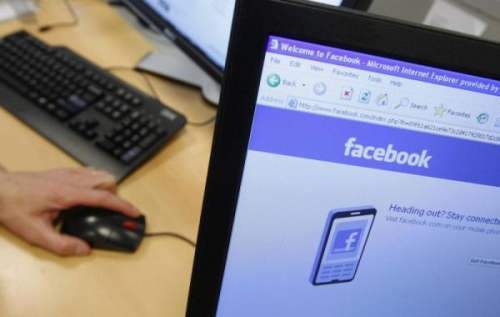
SAN FRANCISCO: Facebook Inc is weeding out fake “Likes” on its social network that are being caused by spammers, malware and black marketeers as it strives to maintain credibility as an advertising platform.
Facebook said the number of Likes, or endorsements by users, on corporate pages is likely to drop by less than 1%, on average, after the crackdown.
“Newly improved automated efforts will remove those Likes gained by malware, compromised accounts, deceived users, or purchased bulk Likes,” Facebook said in a post on its official blog.
“While we have always had dedicated protections against each of these threats on Facebook, these improved systems have been specifically configured to identify and take action against suspicious Likes,” the post continued.
Thanks to a growing black market, companies can instantly raise their profile on Facebook by purchasing thousands of Likes at a time – a practice that is forbidden by the No 1 social network, which has 955 million users.
Many of these Likes come from bogus Facebook user accounts rather than genuine users of the social network.
Meanwhile, various spam-like programs on Facebook deceive users into unwittingly liking something when they perform another action, such as clicking to watch a video.
Facebook said the cleanup will benefit both users and companies that maintain pages on the network, by giving a more accurate measurement of fan count and demographics.
Ensuring the integrity of Likes is serious business for Facebook, which depends on advertising revenue from large brands and other businesses. Many of the ad campaigns that companies conduct on Facebook are designed to garner Likes – a sign that their marketing message has resonated with consumers.
“It’s their currency,” said Jeremiah Owyang, a partner at research firm Altimeter Group. “Facebook is playing the Federal Reserve, to take the counterfeit currency off the market to ensure that there’s quality in the marketplace.”
The problem is not unique to Facebook, say analysts, who note that Twitter and Google Inc also grapple with fake accounts, spam and other techniques to game the service.
But for Facebook, the pressure to show that activity on its social network is genuine has grown as concerns have mounted on Wall Street about the company’s long-term profit potential.
Shares of Facebook set a new low on Friday, falling as much as 5.3% to US$18.08 (RM54.24), after brokerages cut their price targets on the stock. Facebook has lost more than 50% of its market value since its initial public offering in May.
Facebook estimates that 1.5% of its users are “undesirable” accounts set up for purposes that violate its terms of service, according to its most recent 10-Q regulatory filing.
“I think what they’re intending to do is get a handle on it before it gets really out of control,” Brian Blau, an analyst with research firm Gartner, said.
“You can imagine no business wants to pay for advertising to fake accounts.”


